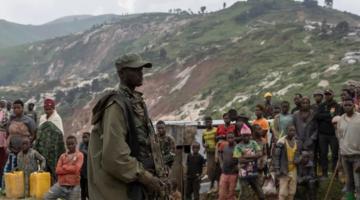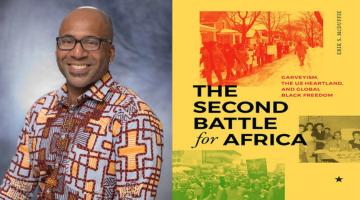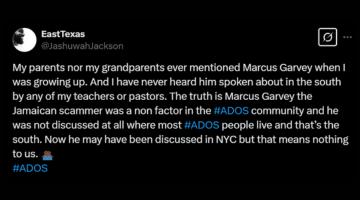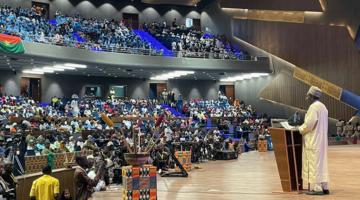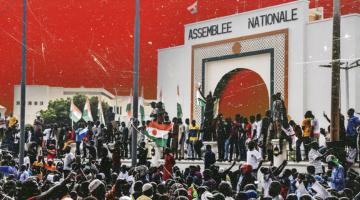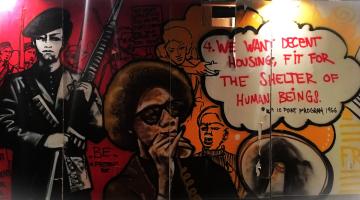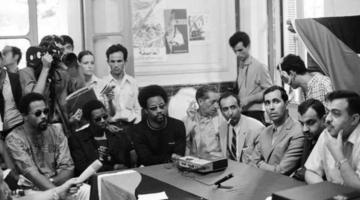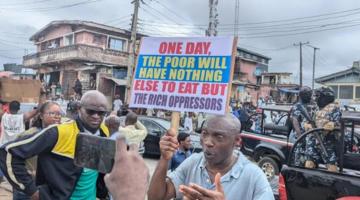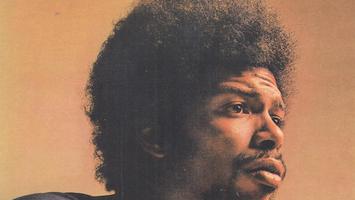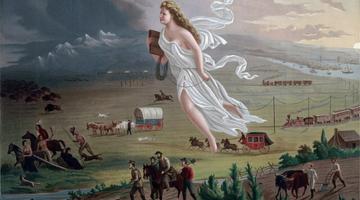People of African descent, no matter where they come from, face challenges in the American racial hierarchy.
“What accounts for the response to the Black Panther movie and its tremendous reception by African descended populations?”
In this series, we ask acclaimed authors five questions about their book. This week’s featured author is Nemata Amelia Ibitayo Blyden. Blyden is Associate Professor of History and International Affairs at George Washington University. Her book is African Americans and Africa: A New History.
Roberto Sirvent: How can your book help BAR readers understand the current political and social climate?
Nemata Blyden: The current debate on immigration, while seemingly focused on immigrants from South America has also drawn attention to the presence of African immigrants in the United States, and often in negative ways. Recent conversations about who can be defined as “African American” have arisen, particularly with respect to access to resources. It has generated debates about affirmative action in college admissions and employment, access to social services and privileges, and raised questions as to whether or not African immigrants are entitled to the benefits and rewards of African American activism. As the population of African descended people in America becomes more diverse, conversations about who can claim an African American identity will no doubt continue. I fear this is a distraction. Historically, African descended people have seen the value of reaching out to each other. I hope my book shows the complexity of an “African” presence in the United States, and allows readers to understand that people of African descent, no matter where they come from, face challenges in the American racial hierarchy. I hope that the book also sparks conversation about the commonalities between people of African descent, and allows African Americans to understand some of the history of their ancestors.
What do you hope activists and community organizers will take away from reading your book?
I hope that community organizers will see the complexity of Black life in the United States, and understand how historically African American women and men have fought to find their place in American society. Black Americans have moved into the twenty-first century with many of the same struggles they have lived with since their ancestors were brought to the United States. But they have also made tremendous progress in attaining citizenship and independence. In recent years, high-profile cases of aggression toward Black citizens have resulted in a certain amount of despair, even rage among Black Americans. Shocked and outraged, African descended people have organized in protest movements, condemning the treatment of Blacks regardless of where they are in the world. We have seen the growth of the Black Lives Matter movement, and other activism. African immigrants in the United States have been part of this activism, as have other immigrants of African descent. In a country still troubled with racial issues, and where people of African ancestry are economically disadvantaged, and constructed in negative ways, conversations between African Americans and Africans are taking place on American soil, as African descended people engage with each other, creating and sustaining historical and political ties. I hope that community organizers will recognize this, and make an effort to coopt and include Black immigrants in their activism. Those communities, now several generations here, must also come to recognize that they face the same issues Black Americans have faced for centuries – racism, discrimination, and economic marginalization.
We know readers will learn a lot from your book, but what do you hope readers will un-learn? In other words, is there a particular ideology you’re hoping to dismantle?
I hope that American readers will “unlearn” the many negative and derogatory representations of Africa they are presented with. My biggest hope is that every day Black Americans will read this book, and appreciate the history of the men and women I write about as it pertains to a positive engagement with Africa. Although there is certainly more acceptance of Africa and its past among Black Americans, there are still many who distance themselves from that past either out of shame, or in a bid to fully be accepted as “American.” My book shows that that tension is not necessary, and Black Americans can embrace their African heritage while fully claiming their Americanness.
Who are the intellectual heroes that inspire your work?
I am greatly inspired by W. E. B. Du Bois. I jokingly say that there is no subject on which the great man did not write, or have an opinion. Du Bois’ long engagement with Africa is an inspiration. Perhaps more than any other African American, W. E. B. Du Bois understood the connections between African Americans and Africa, making it his lifelong goal to educate Americans about the continent, its people, and their counterparts in the African diaspora. Du Bois once wrote that “there are those, nevertheless, who would write universal history and leave out Africa.” (W.E.B. Du Bois The Negro). From his 1896 Harvard dissertation, “The Suppression of the African Slave Trade to the United States of America, 1638-1870,”to his death on the continent in 1963, Dr. Du Bois ensured that Africa would never be left out. I am also, of course, inspired by my great grandfather the Pan Africanist Edward Wilmot Blyden. Learning about him, first from my father, and then as a student of African history I cannot help be inspired by his life and legacy. As controversial as he was, Blyden has stood the test of time in terms of his reflections on people of African descent.
In what way does your book help us imagine new worlds?
This is a small text written largely because I needed a book to teach a course on African American engagement with Africa. I’m not sure I thought about how it might help imagine new worlds. Black Americans have made great strides but, arguably, have not achieved full acceptance and equality in the country to which their ancestors were forcibly brought. What, for example, accounts for the response to the Black Panther movie and its tremendous reception by African descended populations? The many pictures on social media showing Blacks in the United States wearing dashiki, Kente, Ankara, and other imagined African clothes to film screenings is testament to the fact that diasporic connections, while they may lay dormant, are ready to resurface. African American desire for ties with Africa may have waned with the end of segregation, gains of the civil rights movement, and greater integration of Black Americans in the United States, but the connection to Africa remains. Why, in the wake of the election of the country’s first Black President, which to many signaled full integration, do we have a hugely successful movie that stoked Black American pride in Africa, prompting inquiries, not all in jest, about how to get to Wakanda. Perhaps the film’s release coincided with a larger despair about the promise of America, symbolizing a world of equality and freedom that many feel have eluded them. Or perhaps it promised a safe haven from violence. But we know that African American men and women have over the centuries chosen to fight for freedom and for their rights, rather than flee. Although Africa lingers in their imagination, the United States is their home. I hope this idea and my book, as it outlines the struggles of Black Americans allows people to see the possibility of those new worlds.
Roberto Sirventis Professor of Political and Social Ethics at Hope International University in Fullerton, CA. He also serves as the Outreach and Mentoring Coordinator for the Political Theology Network. He is co-author, with fellow BAR contributor Danny Haiphong, of the new book, American Exceptionalism and American Innocence: A People’s History of Fake News—From the Revolutionary War to the War on Terror.
COMMENTS?
Please join the conversation on Black Agenda Report's Facebook page at http://facebook.com/blackagendareport
Or, you can comment by emailing us at comments@blackagendareport.com

